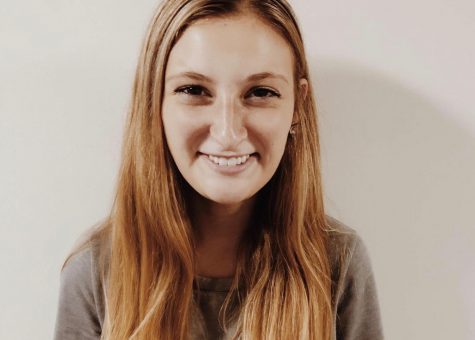Column: Are you afraid of the dark?
Mar 28, 2019
This weekend at the box office, new horror movie “Us” broke the record for the biggest opening day in history, grossing more than $29 million, according to Forbes.com. Reading this record-breaking statistic, it got me thinking about how much people love scary movies.
“Us” is a new horror movie from director Jordan Peele, who recently hit big-time success with his previous thriller, “Get Out.”
Seeing the massive success of this movie and having loved “Get Out,” I watched the trailer, which left me terrified and intrigued all at once. I want to see this new scary movie, but I know that if I do, I’ll have to deal with the repercussions and correlating lack of sleep for weeks.
I can’t be the only one in this situation. Clearly, people love scary movies, even though they mess with their minds.
I still remember watching horror movie mastermind M. Night Shyamalan’s “The Village” when I was younger, and having to sleep with the lights on that night. Every time I would close my eyes, I would see those gross red-hooded monsters.
Then there was the time I saw “The Quiet Ones,” a movie about an experiment with a professor, some students and a girl turned poltergeist. After seeing this in the theater, I could not close my eyes long enough to go to sleep for the entire night.
Most recently, I watched “Hereditary,” a movie about a family unraveling their dark and demonic ancestry. After watching what a friend of mine called “the scariest movie ever,” I admittedly had to sleep with my lights on for a solid two weeks.
Despite the anxiety these movies induce, I continue to go back and watch more of the genre, time after time. Something about them creates a mix of intrigue, excitement and terror that always leaves me wanting more.
Considering that a horror movie just broke an opening day record, I can’t be alone in this confused love of horror movies. The genre ties people of many demographics together to watch and simply be scared.
This begs the question: Why do people like scary movies? Do people actually enjoy being scared?
There are many, many scholarly theories as to why people love horror movies.
Some scholars tie a public love of being scared back to Aristotle’s theory of catharsis. We watch horror movies as a way relieving pent-up aggression. Dolf Zillman went further with this in his Excitation Transfer Theory. John Hess, on the website of Psychology Today, noted that “negative feelings created by horror movies actually intensify the positive feelings when the hero triumphs in the end.”
Cultural historian David Skal argued that horror films are a simple reflection of our societal fears. Hess explained, “Looking at the history of horror, you have mutant monsters rising in the 50s from our fear of the nuclear bogeyman, Zombies in the 60s with Vietnam, ‘Nightmare on Elm Street’ as a mistrust in authority figures stemming from the Watergate scandals and Zombies again in the 2000s as a reflection of viral pandemic fears.”
Malcolm Turvey, director of the Film and Media Studies program at Tufts University said that the most popular theory is “the beast within theory …It argues that an unconscious, repressed part of every human is actually savage; that the veneer of civility is very thin, and beneath that is essentially a monster.”
While none of these theories fully explain the exact reasoning behind why so many of us love being scared at onscreen action, people nonetheless are continually fascinated at watching evil unfold.
Although I can’t quite put my finger on why, I will continue to watch scary movies — even if it means not being able to sleep for a few nights in a row. The fun of being scared in the moment is simply worth the pain of the aftermath, I guess.












